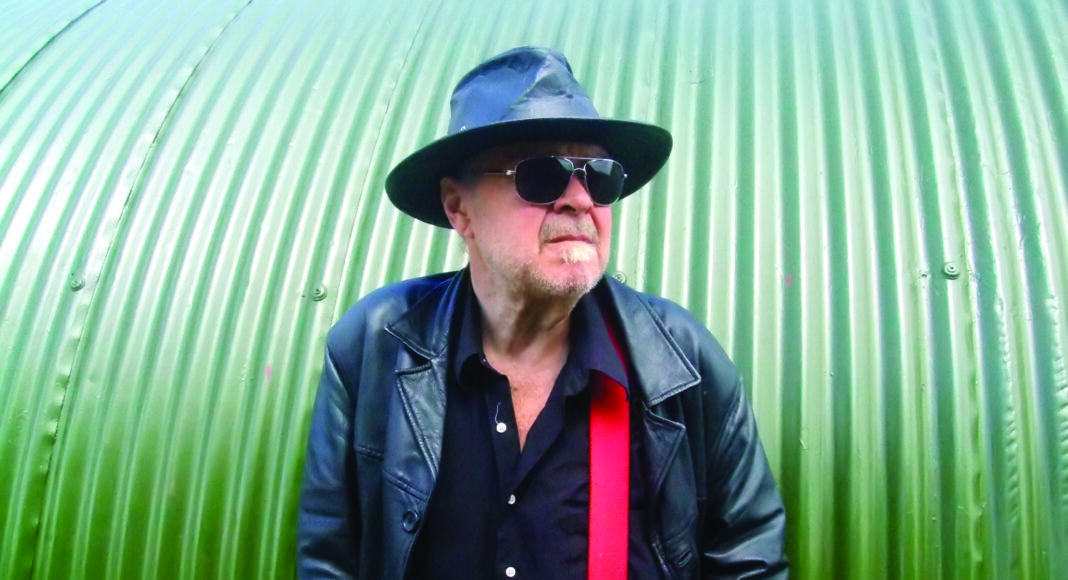Back in 1975, before punk was even a fully formed genre, a Cleveland band led by the singer and songwriter David Thomas were fusing garage rock with harsh, glitchy electronics, field recordings, pulsing dance music and avant garde passages of noise. Without Pere Ubu, there would be no Pixies, no Sonic Youth and no Parquet Courts.
Musicians are often painted as rule-breakers—mavericks who live outside of society’s rules, creating liberated works of art that flout all rules and regulations. Given the radical vision of Thomas and his cohorts, it would seem Pere Ubu fit neatly into this mold. However, Thomas doesn’t view himself this way.
“I don’t know if we break rules,” Thomas says from his home in the UK. “I know the rules really well. And if we do indeed break rules, you have to know the rules first. There’s too many people who go, ‘Oh, I’m breaking rules. Oh, it’s a good thing.’ It’s not a good thing. The rules are there for a reason. And you damn well better know what the reason is before you talk about changing them.”
Thomas isn’t being facetious. The restless experimentation that has defined Pere Ubu for the last 42 years has in large part been undergirded by many formal structures. A list of “band rules and musical principles” is available on the band’s website, ubuprojex.com, and includes items such as “just because you can, doesn’t mean you should,” and “avoid irony like the plague.” In a 1989 interview, Thomas described the band’s goal as an effort to “establish a language” of their own.
If that’s the case, they are still very much fluent. Earlier this year Pere Ubu released their 16th studio album, 20 Years in a Montana Missile Silo. The album is the result of a new creative method for the group, which Thomas calls “The Dark Room.”
“The idea is to eliminate the influence of any one person,” he says. “One of the problems is that people pay attention to what other people are doing, and that’s not necessarily what I want. You know, they’ll think the guitar player or bass or whatever it is wants to do this, and people in a group are naturally accommodating. Others will bend to the will of someone who has expressed an idea. I really don’t want that to happen.”
The Dark Room operates by literally keeping the musicians in the dark, each recording their parts with only the barest idea of what the song itself is. In the end, everyone knows what they played, but has no idea what the others have done until they hear the final result.
This process is similar to Ubu’s previous creative principle, which was used on the project’s previous three full-lengths—a period of time Thomas has dubbed their “Orange Period.” During the Orange Period, Ubu’s songwriting worked like a game of telephone:
“One person whispers an idea or a sentence or something to one person, and then they pass it on to the next person, and by the time it goes around the circle and back to you, it’s become something different.”
That experimental process yielded some great results for a band so deep into their career. Take 2014’s Carnival of Souls, for example. It is essential Ubu, and two of its tracks were even featured in FX’s American Horror Story.
The difference between the Orange method and The Dark Room tinkerings largely comes down to control. During their Orange Period, the band members could influence each other. In the new method, Thomas says, “Everybody thinks that it’s going the way that they’re inputting. Well, it may or may not be.”
The result is a record just as inspired and bewildering as anything in Ubu’s discography. Opener “Monkey Bizness” kicks out of the gate with a driving riff that could have been played by Bloc Party. Exemplifying his new method, that riff quickly becomes reduced to a layer, as the song becomes increasingly saturated with textural elements from the disconnected musicians. Album highlight “The Healer” revolves around a haunting clarinet passage, played over acoustic guitars, pianos, and Thomas’s eerie refrain of “I see too much.” It clearly shows the fruits of his new process.
While many bands settle into a comfortable late period, rehashing classics and trying to recapture lost youth, Pere Ubu is a band that has never stopped moving, restlessly searching out new ground.
“I’m moving right now, as we speak,” Thomas says.
Pere Ubu
Dec 5, 8pm, $20+
The Ritz, San Jose
theritzsanjose.com



